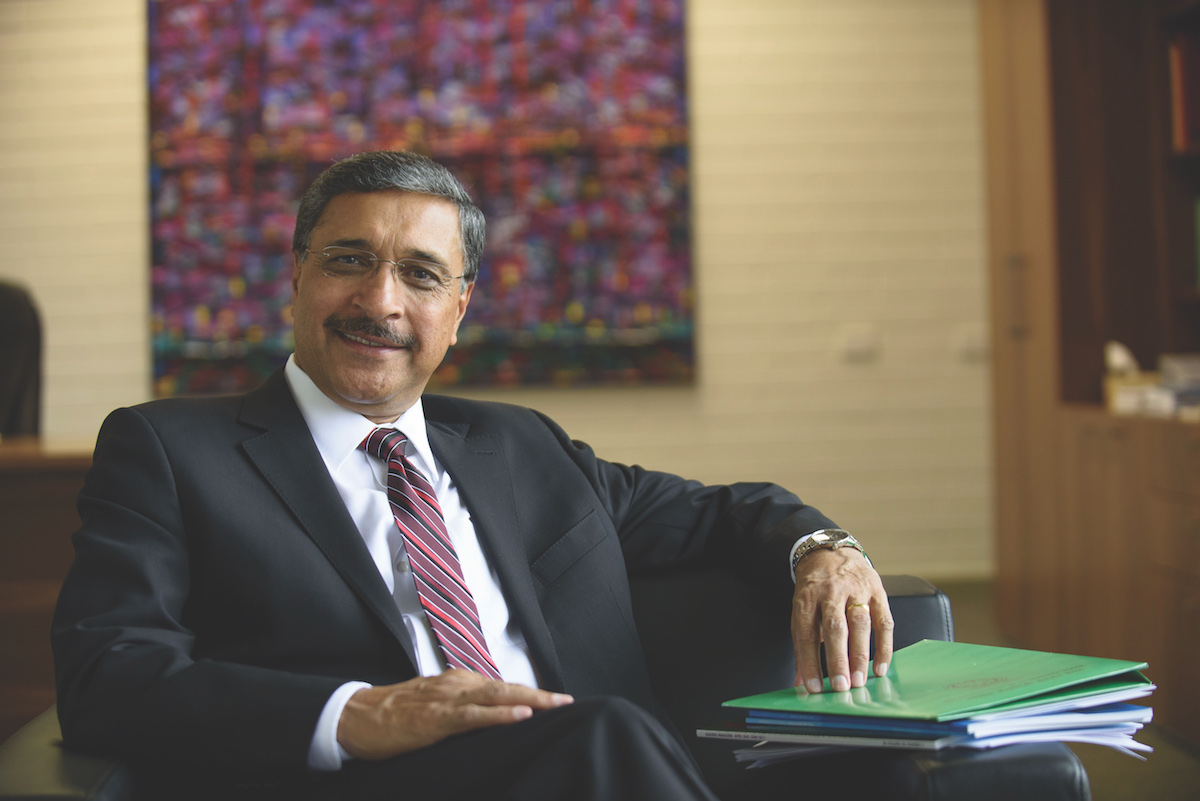Nurturing growth in education: Deep Saini
This renowned biologist has returned to Australia to ensure the same opportunities he received through education can be extended to students today.
Educational visionary Professor Deep Saini likens coming back to Australia to truly coming home, despite India being his birth country. "I had a phenomenal intellectual and professional experience at the University of Adelaide," he says. "Australia never really left my mind even though I was away from the country for 34 years."
Following his PhD from the Adelaide institution, Deep enjoyed an impressive career in plant biology and academia that took him to various parts of the world. He says his family has agricultural ties from as far back as he can remember, leading to his early interest in the study of living organisms. "My father grew up on a farm, which he eventually left to become a forest officer in India," Deep recalls. "I grew up with a love for the environment and nature; I guess that’s probably why I ended up following a career in plant biology."
Deep Saini believes in the transformative power of education
Something that excites Deep even more, however, is the personal and professional growth that is provided by formal education. Like his love of nature, this too was instilled from a young age and has played a significant role in his professional career. "My father had very humble beginnings. He was the first one to break out of a relatively poor existence on a marginal farm, and the transformative power of education that he got is not lost on me."
After a stint as a vice-president at the University of Toronto in Canada, where he led major expansion projects and championed the internationalisation of enrolments, Deep has returned to Australian soil. He’s currently vice-chancellor and president of the University of Canberra – a place where he hopes to pay it forward for some of the opportunities he received throughout his career-defining, scholarship-funded PhD education in Adelaide.

Deep believes he can do more good for the education sector by taking his experience and applying it to a burgeoning "diamond in the rough" like the University of Canberra. "It was a very attractive opportunity to work with such a young university that ranked in the top 4% of higher education institutions globally," he comments. "That doesn’t happen very often, and I thought, well, here’s an opportunity for me to contribute and play a role in building it."
University of Canberra's Educated Life Campus Development Plan
His predecessor’s unique Educated Life Campus Development Plan also caught his eye. "It’s unprecedented in scale and nature," Deep says. "A total of $2 billion is being invested over the next 15 years to bring the community and the university together – physically and functionally. This will be done through a number of projects, including a large residential precinct with 3,100 on-campus units as well as dedicated focus areas for health, education, sports and innovation."
It was a very attractive opportunity to work with such a young university that ranked in the top 4% of higher education institutions globally.
While other universities have attempted similar redevelopments, to Deep’s knowledge it has never been on this scale and in such an integrated way. "It’s not about just building real estate on our greenfields but rather creating a confluence of community, research, industrial, intellectual and learning opportunities that coexist and function in an interactive manner."
The redevelopment at its roots has an audacious aim: for the University of Canberra to become one of Australia’s greatest modern universities. To help it achieve this goal, partnerships with various organisations have been formed.
One such collaboration is with Moran Health Care Group to create an on-campus aged-care facility that will act as an innovative hub for research and for practical studies. This partnership, and others with the likes of Samsung, Pearson, Microsoft, Kemp Pharmaceuticals, Peet Group and the Australian Institute of Sport, will benefit not just the university but also the wider community.
Supporting students with resources
One of the foreseeable challenges for Deep as he promotes the future of Canberra as an education hub is the capital city’s size; however, he says that it doesn’t hinder the feeling that there are plenty of opportunities ahead. "We still have a relatively small community compared to our neighbours like Sydney, but we’re becoming increasingly attractive for students and staff who are looking for a natural setting – a place that’s more peaceful and quieter than a big metropolis."
Any student who is capable of studying at a university should have a chance to study, regardless of their financial situation.
Deep is striving to bring as many resources as possible to students to ensure they get the most out of their university experience.
He also believes that "any student who is capable of studying at a university should have a chance to study, regardless of their financial situation".
With this in mind, Deep and his family have personally set up at least one scholarship at each of his three latest institutions, and they encourage those who are able to do the same to pay it forward. "We walk the walk, and I constantly urge others to give to this noble cause. I’ll certainly continue to do it." This commitment extends to an institutional level: "I am a major believer in setting aside part of the revenue at a university to support those students who are academically capable but perhaps financially challenged," he adds.
Deep has been a recipient of a Queen Elizabeth II Diamond Jubilee Medal, but despite this he says his proudest achievement, aside from being a deeply engaged family man, is improving lives through education. "Having touched literally thousands of lives in my career is probably the thing that I’m most proud of professionally," Deep concludes.